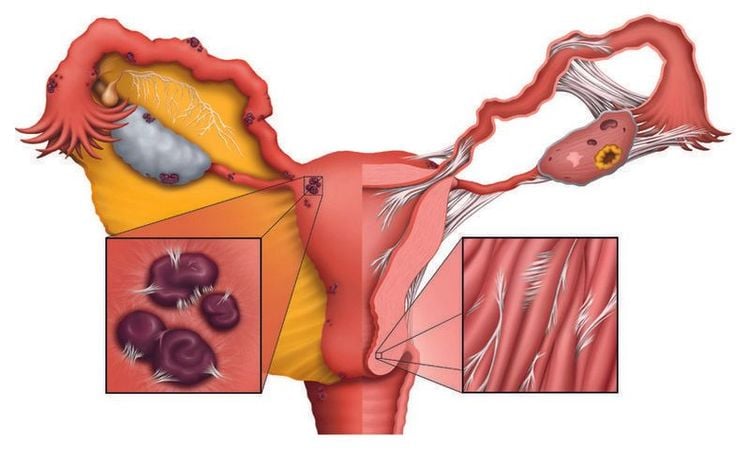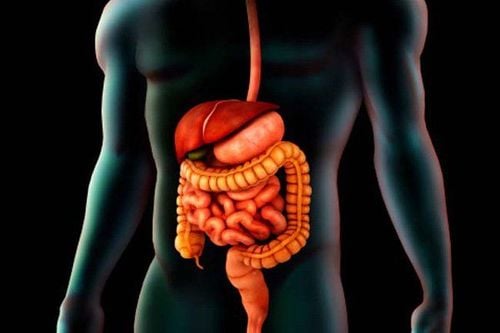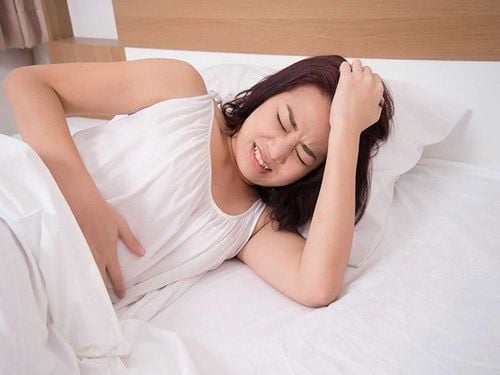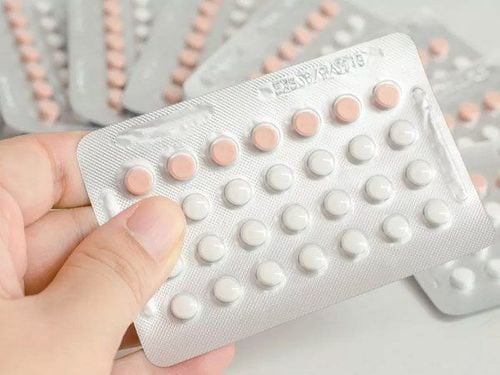This is an automatically translated article.
The article is professionally consulted by an Obstetrician and Gynecologist.Irregular menstruation causes many troubles for women in daily life. In addition, it also significantly affects the health and ability of mothers. Therefore, women need to understand why irregular periods are caused by a reasonable treatment method.
1. How is menstrual irregularity considered? If your period does not follow a certain cycle, may come early, come late or even amenorrhea, it is an irregular period.
2. At what age are irregular periods common? Irregular menstrual periods are common in girls at puberty due to hormonal and ovarian dysfunction. However, it only appears during the first 2-3 years of menstruation.
In women of reproductive age, irregular menstruation that lasts for many days can be a sign of gynecological diseases such as: Cervicitis, endometritis, uterine fibroids, cysts Ovarian , ... These diseases can affect the health and fertility of women .
Trắc nghiệm: Sự hiểu biết của bạn về kinh nguyệt
Kinh nguyệt có vai trò quan trọng đối với sức khỏe sinh sản, do đó nữ giới cần chủ động trang bị kiến thức để theo dõi và kiểm soát tình trạng sức khỏe. Bài trắc nghiệm sau đây sẽ giúp bạn hiểu hơn về chu kỳ kinh nguyệt của bản thân.3. Symptoms of menstrual irregularities Normally, a menstrual period will last about 28-30 days, it can be faster or slower by 3-5 days. Menstruation lasts 3-5 days. Symptoms of menstrual irregularity include:
Menstrual cycle less than 21 days or more than 35 days. Menstrual duration is shorter than 3 days or longer than 7 days. The amount of menstrual blood loss can be too much or too little. Menstrual blood has an abnormal color, black blood, mixed with blood clots. There are signs of bleeding between 2 periods. The period between two periods can last for a few months or just a few days. The amount of menstrual blood is sometimes a lot, sometimes a little. Menstruation is stopped for 6 months or more (secondary amenorrhea) or never menstruated (primary amenorrhea). Severe abdominal pain, back pain, fatigue, ... during menstruation. 4. Irregular menstrual patterns Early menstruation: Menstruation can come 3 days early, sometimes 7 days or even menstruation occurs twice a month. Missed period: Usually, women often delay their period for 3-4 days, but if their period is 10 days late and they have had sex before, they should think about being pregnant. Menorrhagia: Menstruation lasts > 7 days. The amount of blood ejected more or less depends on the cause. Menstrual cycle: That means you are 2 months late, 3 months or 5 months apart. Amenorrhea: Means you have not had a period for more than 6 months or 1 year.

Kinh nguyệt không đều gây nên nhiều phiền toái cho chị em phụ nữ trong cuộc sống hàng ngày.
5. Harm of irregular menstruation Irregular menstruation changes female hormones, causing the beauty of women to change, especially those over 30 years old. Pale, rough skin, prone to pigmentation, freckles, large pores, acne, premature aging. The body is often tired, angry, memory is reduced, prone to bone and joint diseases. A prolonged menstrual cycle causes a lot of blood loss, making people tired, pale skin, dizziness, shortness of breath, heart palpitations... Irregular menstruation is a manifestation of some gynecological diseases such as: Polycystic ovaries , uterine fibroids , endometriosis , ovarian cancer , ... Decreased ability to conceive due to irregular menstruation leads to altered ovarian activity. Therefore, the follicles cannot ripen and release at the correct cycle. Risk of infertility - infertility: Irregular menstruation due to gynecological diseases, if not supported in time, can lead to infertility - infertility. 6. Causes of Irregular Periods Here are 14 common causes of irregular periods:
6.1. Pregnancy Pregnancy causes missed periods or light bleeding. If you notice a missed period or changes in your period that you've previously had sex without using birth control, you can check to see if you're pregnant.
6.2. Hormonal Contraceptives Hormonal contraceptives can cause irregular bleeding between periods leading to much less menstrual periods. Birth control pills cause irregular periods.

Viên uống tránh thai nội tiết có thể gây ra máu bất thường giữa chu kỳ kinh dẫn đến kinh nguyệt ít hơn nhiều.
6.4. Perimenopause Usually begins at age 40 or earlier. Fluctuating estrogen levels during this time can make periods longer or shorter.
6.5. Polycystic Ovarian Syndrome Irregular menstruation is the most prominent feature of PCOS because increased levels of androgens can cause amenorrhea or heavy bleeding during menstruation.
6.6. Thyroid disease Hypothyroidism, an underactive thyroid gland can make your periods longer, heavier, and cause more abdominal pain. Hyperthyroidism will make your period shorter and less frequent.
6.7. Uterine Fibroids Fibroids are muscle tumors that grow in the wall of the uterus. Fibroids can cause heavy menstrual bleeding, pain, and anemia.
6.8. Endometriosis Endometriosis occurs in 1/10 of women of reproductive age. Endometriosis causes severe abdominal pain during menstruation, prolonged menstruation, heavy bleeding, and bleeding between periods.

Lạc nội mạc tử cung gây đau bụng dữ dội khi có kinh, khiến kinh nguyệt kéo dài, ra nhiều máu và chảy máu giữa các kỳ kinh
6.9. Being overweight Being overweight affects hormones and insulin levels that affect your menstrual cycle. Obesity causes irregular periods. Rapid weight gain also causes menstrual irregularities. Weight gain and irregular periods are common signs of polycystic ovary syndrome and hypothyroidism.
6.10. Eating disorders and rapid weight loss Losing too much weight too quickly can cause amenorrhea. In addition, your body will feel fatigue, headache, hair loss. Not eating enough calories can also interfere with the production of hormones that affect ovulation.
6.11. Exercising too much Heavy or strenuous exercise interferes with the hormones responsible for menstruation. Reducing exercise intensity and increasing calorie intake can help restore menstruation.
6.12. Stress Stress affects the area of the brain that controls pituitary hormones, making the process of secretion and ovulation unstable, causing irregular menstruation. Menstruation will return to normal once the stress is gone.
6.13. Side effects of drugs Some drugs affect the menstrual cycle such as:
Thyroid medicine. Anticoagulants. Antidepressants . Chemotherapy drugs. Epilepsy drugs. Aspirin and ibuprofen. Hormone replacement therapy. 6.14. Cervical cancer Cervical cancer causes heavy bleeding between periods or periods. Bleeding during or after intercourse and unusual discharge are other signs and symptoms of this condition.
7. Treatment of irregular menstruation Using modern equipment to check the vagina for gynecological diseases or not have timely treatment. Check the abdominal cavity, cervix, ovaries, fallopian tubes, ... there are no problems. Irregular menstruation affects many parts of the body. Therefore, you need to know how to take care of yourself.
Change the daily menu. You should create a suitable diet, add essential vitamins and minerals, add vegetables and fruits and eat a variety of foods. This helps to strengthen resistance and stabilize hormones in the body.
Increase exercise exercise Daily exercise suitable for yourself, do not over-exercise to help women have a good circulatory and metabolic system to help eliminate endocrine disorders.
Drink lots of water This is extremely important to help the body work smoothly and keep blood sugar stable, helping effectively to treat irregular periods. Add 2 liters of water per day.
Avoid using stimulants Avoid drinking alcohol, smoking, ... Because these are harmful to health, making menstrual irregularities. Thus, irregular menstruation affects both the health and fertility of women. When seeing abnormalities in their menstrual period, women should go to the hospital as well as specialized medical facilities for timely examination and treatment when there is an illness.
Please dial HOTLINE for more information or register for an appointment HERE. Download MyVinmec app to make appointments faster and to manage your bookings easily.













